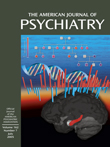Mind, Meaning, and Mental Disorder: The Nature of Causal Explanation in Psychology and Psychiatry, 2nd ed.
In the epistemological spirit of trying to make (human) order out of (natural) disorder, this ambitious book attempts to trace the logic-oriented striving of psychology and psychiatry to apply observation, statistics, and logic to the chaotic phenomena of the mentally ill mind. For Americans, the use of British spellings (“behaviour”) and grammatical constructions (“the latter became subject to much philosophical stick”) may be distracting. For believers in biological underpinnings, descriptions such as, “The person appears to have nothing to be depressed about, or can think of no reason to be depressed,” may elicit head-shaking outrage. Clinicians seeking research or even anecdotal evidence of best practices will be entirely disappointed because these pages offer abstractions only and no immediately applicable hypotheses or data. However, if the reader is open-hearted and willing to adventure into the overlapping realms of theoretical philosophy and medical nosology, then there may be surprising rewards at the conclusion. Initial familiarity with the treatises of Plato, Michel Foucault, Karl Jaspers, Wittgenstein, Hume, and Thomas Szasz will be helpful, as will a schematic overview of neurobiology.
The type of analysis in Mind, Meaning, and Mental Disorder may be demonstrated by a series of reasoning statements and paradigms. For example, if one’s former happy internal state is presumed to be linked to a happy external event, and one’s current unhappy state cannot be associated with any precedent unhappy stimulus, then could both the happiness and unhappiness be random rather than linked to or evoked by biochemistry or genetics or contagion? The conclusion of the authors is that only brain processes are genuinely causal. Alternatively stated, 1) intentionality is critical in the regulation and prediction of action, 2) intentional processes are causal, 3) intentional processes that regulate behavior are encoded in the brain, and 4) intentionality involves relativity. The process by which the authors arrive at their conclusion is through fording the dense and swirling waters of “meaning-as-culture”; the assumptions and methods of science; the conceptualization of the self, personality, and uniquely individual cognitive commitment; the distinctions between “understanding” and “explanation”; and the evolutionary connections between psychoanalytic interpretation and a prescription pad. (The seemingly benign linguistic caveats of the first paragraph are not so superficial as might have been suspected.)
This volume has nine major divisions, with at least five subdivisions in each. Tracking the lines of thought requires consistent attention; this is not a book to be casually perused in bits and pieces over a protracted period of time. The development of the fundamental intellectual pursuit here starts with the intent of the authors to elucidate the bases of “action,” conceptualized as likely related to neural causation. In this model, empathy is merely the subjective re-creation of the electrochemical objective existence of the other person. Some of the logic is primarily semantic, and other aspects are firmly rooted in known physics and molecular biology. At the end, anxiety, schizophrenia, and personality disorders are deconstructed, and throughout, the examination is conducted with true passion and inspiration. Not for everyone.



